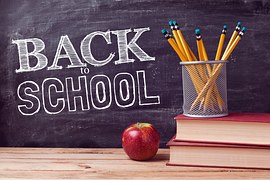The purpose of this page is to organise the contents in the different courses, focusing on grammar, vocabulary, reading and speaking
GRAMMAR:
-PRONOUNS IN ENGLISH
-AUXILIARY VERBS. Video on the basics of auxiliary verbs in English.
-To be and have got. Basic English Usage. Presentations, quizz and activities.
-PRESENT SIMPLE
-REVISION FOR THE FIRST TERM (Present simple, to be, have got and vocabulary)
-PRESENT SIMPLE AND CONTINUOUS
-TO BE GOING TO
.MODAL VERBS
- MODAL VERBS I: CAN, COULD, MUST, SHOULD (BASIC LEVEL). Presentation, activities and quizz. CLICK HERE
-SIMPLE PAST
- WAS/WERE, THERE WAS/WERE
- Simple past. Mindmap, activities and more
- Saint Valentine's story
- IRREGULAR VERBS
-QUESTIONS IN ENGLISH
- Apuntes sobre los tipos de preguntas , yes no y wh
- Preguntas para respuestas a distintos niveles, desde 1º y hasta 4º.
- Grammar revision with KAHOOT! Games and activities to play. (A1-A2). Click here
-GERUNDS. BASIC PRACTICE. Includes activties and explanation. CLICK HERE.
-GERUNDS. BASIC PRACTICE. Includes activties and explanation. CLICK HERE.
VOCABULARY:
- Días de la semana, meses del año y escribir la fecha
- Classroom vocabulary and expressions
- The weather: El tiempo atmosférico
- Members of the family. BASIC VOCABULARY.
- Describing people: describir personas
- El pelo, hairstyle vocabulary
- PArtes de la cara.Parts of the face
- Partes del cuerpo. Our body
- Pasapalabra. Revision activity
- Places: lugares
- Houses. Furniture. Parts of the house.
- Rutinas del día a día. Daily routines in English
- Ropas. Clothes in English
- Animales. Animals in English
- Comida. Vocbulario sobre alimentos, preparación, recetas. A distintos niveles. Click here
REDING AND LISTENING:
- Historias con subtitulos para escuchar y ver.
- What is the origin of Thanksgiving. Easy video comprehension.
- Historia de GUy Fawkes. Listening
- Halloween story
- Saint Patrick's day. Día de San Patricio. Culture.
- April Fools. Listening and vocabulary.
- Juego de adivinar la película. Listening
- Juego de dibujar- draw me a picture
- British Food.
- Rosa Parks. Listening Comprehension.
- LISTENING AND ROLE PLAY. Situaciones de aprendizaje
- Comprar en un supermercado. Buying at a supermarket
- Comprar en una tiemda de ropa. At a clothes shop
- Role play. Interview with... a famous
- Creating a club brochure CLick here
- Buying a train ticket. Click here.
- ORAL PRESENTATIONS:
- Describing a city. Giving basic presentation and explaining to your partners.
- Show and tell. Presentación oral
- A biography.
- PROJECTS:
- Creating a club brochure . CLick hereç
- OUR ECOLOGICAL DREAM HOUSE. Click here

OUR ECOLOGICAL DREAM HOUSE. PBL. JUANA MORAL'S ENGLISH SITE - ICE BREAKING for all levels. Spinning wheel for ice-breaking activity. Click here
WRITING:
- Describing a city. Giving basic presentation and explaining to your partners.
- Show and tell. Presentación oral
- A biography.
Es importante usar todo el vocabulario y la gramática aprendidos cada vez que vayamos a hacer una redacción. Todas ellas tendrán que tener un mínimo de tres párrafos. No olvidemos que todas las oraciones deben empezar con el SUJETO. Muy importante que este sujeto concuerde con los verbos. Finalmente, los adjetivos SON INVARIABLES y van DELANTE DE LOS SUSTANTIVOS.
Algunos temas básicos serán:
- Describir personas:
- Empezar siempre por una parte (por ejemplo la cabeza) y luego seguir de forma ordenada con el resto. Usar una frase introductoria tipo: I am going to describe... Incluir la información necesaria y recordar que los adjetivos van delante de los nombres.
- Hablar de las rutinas nuestras y de nuestros amigos.
- Muy importante, para las rutinas usamos el presente simple y los adverbios de frecuencia. Para ordenar los eventos usaremos conectores.
- Describir las ropas que llevan personas en estos momentos
- Para lo que sucede en le momento de hablar usaremos el presente continuo.
- Contar una historia en pasado
- Atentos a los sujetos. Atentos a los verbos en pasado de la historia. Importante usar conectores para ordenar lo que ocurre
- Contar nuestros planes de futuro
- Para planes usaremos to be going to o el presente continuo.
- Para predicciones usaremos will
Conectores:
Son fundamentales para trabar las partes de la redacción. Vamos a incluirlos agrupados por significados. Seguro que nos ayudan a mejorar las redacciones y a entender lo que leemos. Recordad que van seguidos siempre de un sujeto.
- Empezar siempre por una parte (por ejemplo la cabeza) y luego seguir de forma ordenada con el resto. Usar una frase introductoria tipo: I am going to describe... Incluir la información necesaria y recordar que los adjetivos van delante de los nombres.
- Muy importante, para las rutinas usamos el presente simple y los adverbios de frecuencia. Para ordenar los eventos usaremos conectores.
- Atentos a los sujetos. Atentos a los verbos en pasado de la historia. Importante usar conectores para ordenar lo que ocurre
- Para planes usaremos to be going to o el presente continuo.
- Para predicciones usaremos will


No hay comentarios:
Publicar un comentario